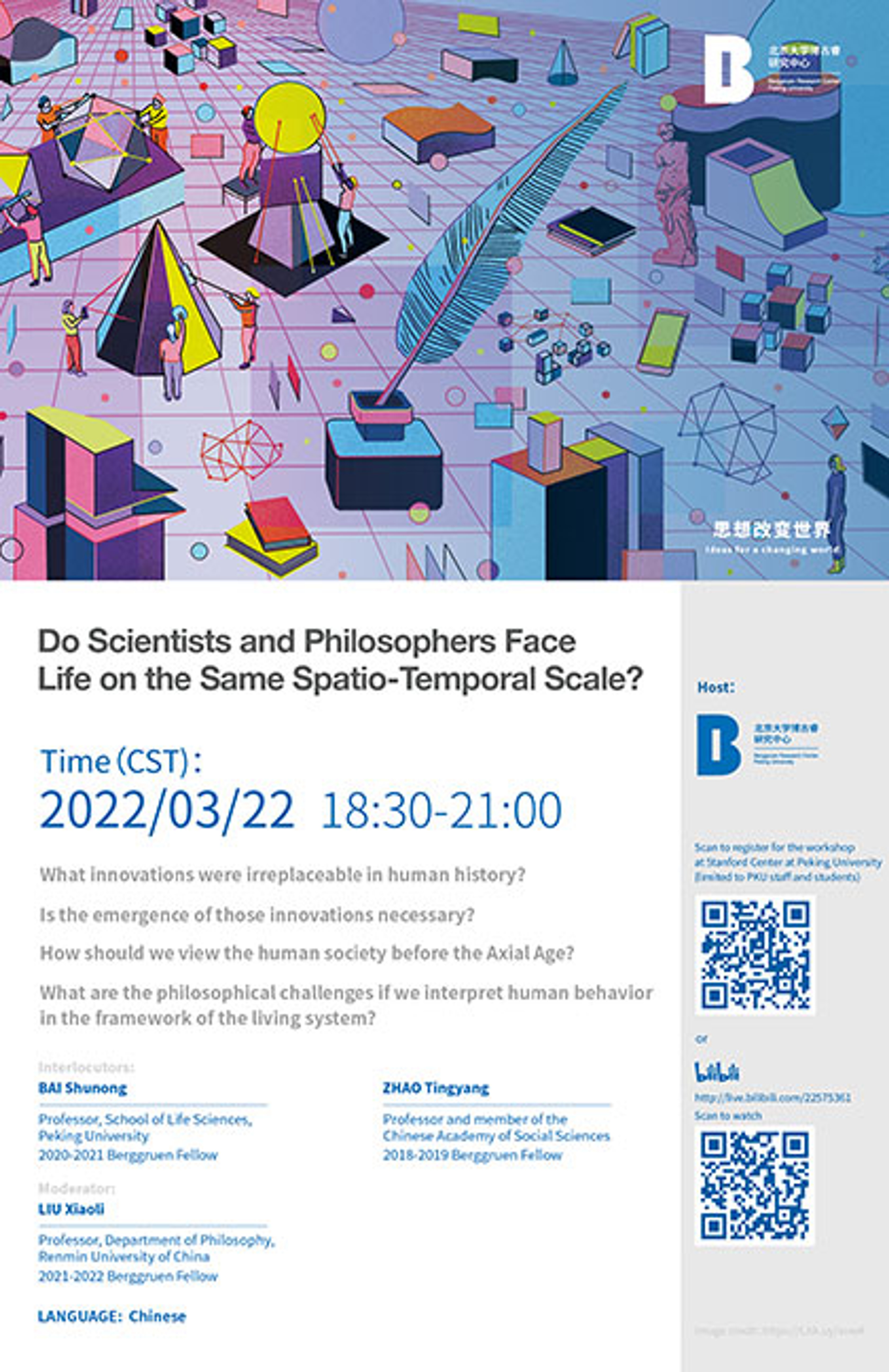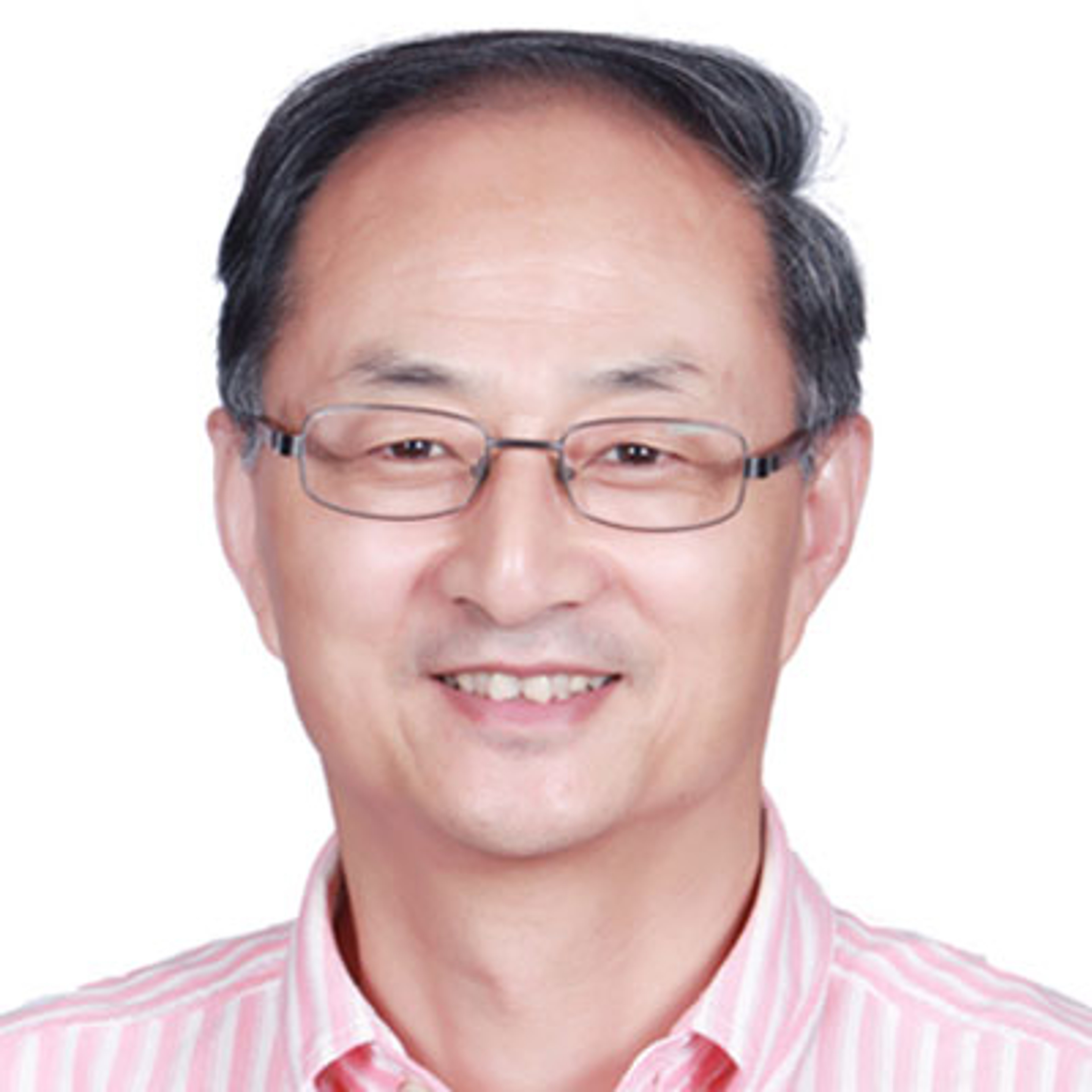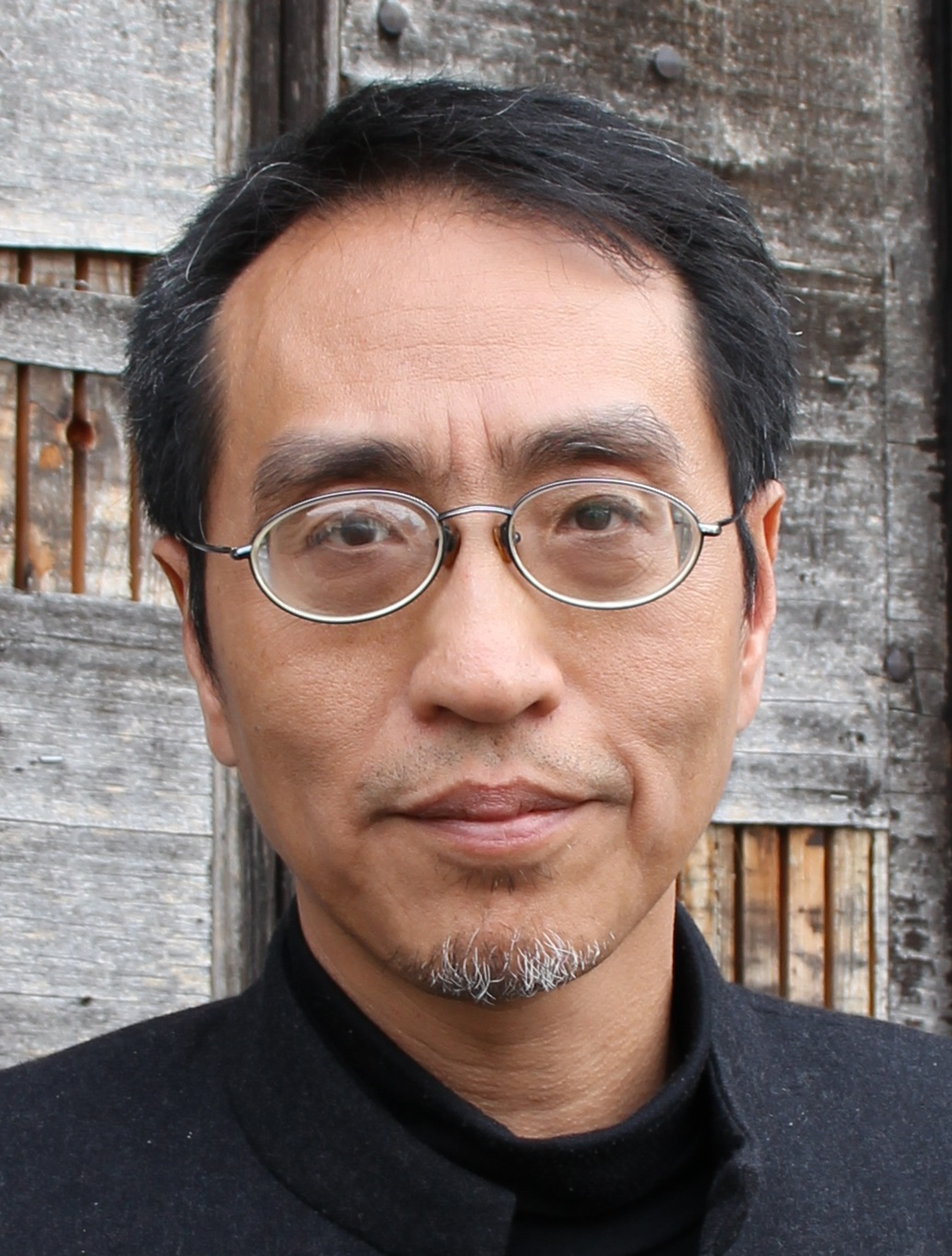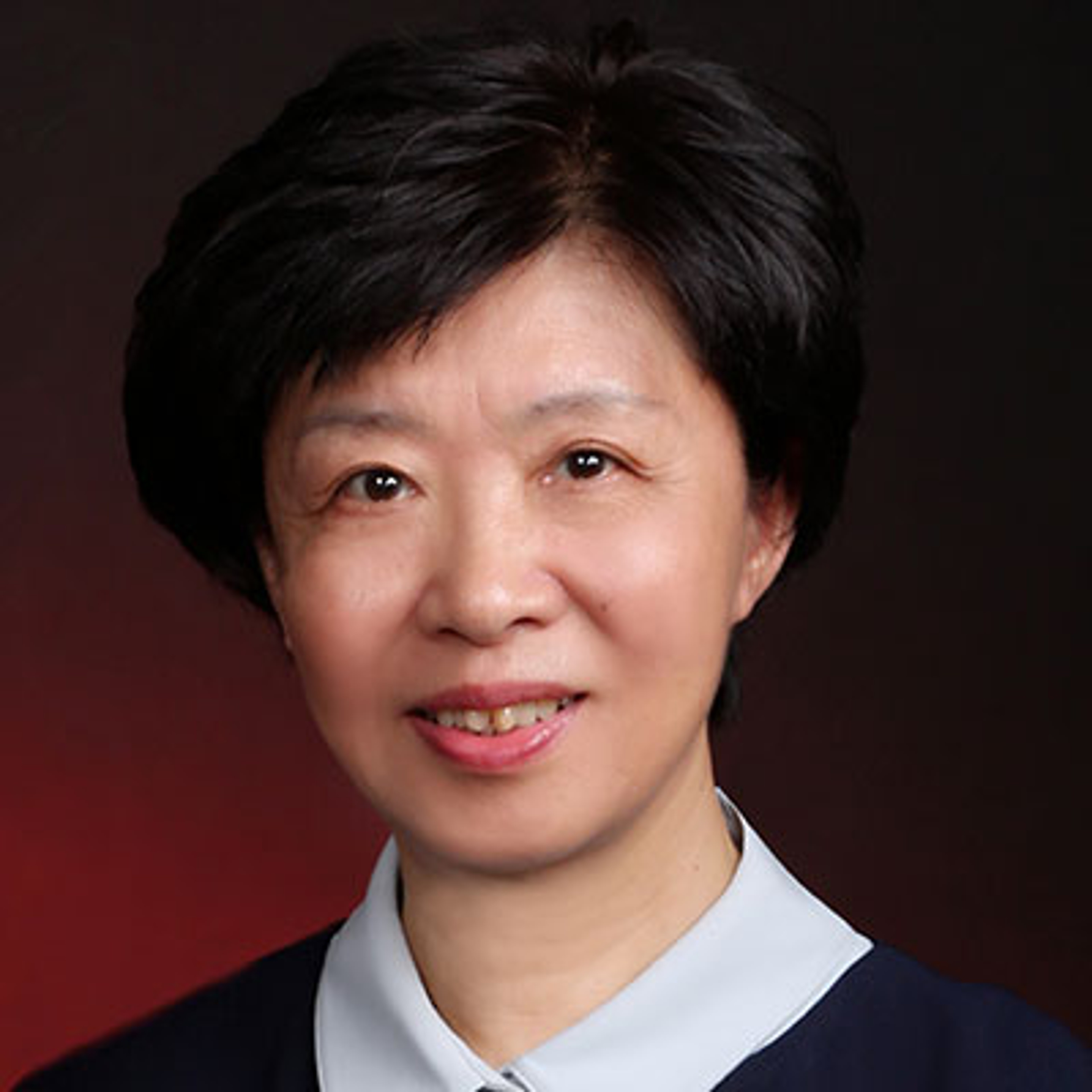Do Scientists and Philosophers Face Life on the Same Spatio-Temporal Scale?
- Date: March 9, 2022
Time: March 22, 2022 2:30 a.m – 4:00 a.m PDT | 18:30-21:00 Beijing Time

Language: Chinese
Registration:
Register for the workshop at Stanford Center at Peking University (limited to PKU staff and students):
https://www.huodongxing.com/event/4640017973800
Streaming Platform:
Bilibili: http://live.bilibili.com/22575361
About the Dialogue:
Do biologists and humanists agree that “human beings are biological organisms”? Is there a boundary between “human beings” and ” other animals”? If yes, where should the boundary be drawn? If not, what does it mean to be a “human being”? How could a boundary be meaningful for the understanding of human beings and of life? From November 2021, the Berggruen Research Center at Peking University will launch a series of workshops called “When Science and Humanities Face Life Together,” inviting life science scholars, humanities and social science scholars, artists, and cross-disciplinary thinkers to discuss the questions “what is human” and “what is life” under differing perspectives. The series aims to promote mutual understanding between the “two cultures”, and to provide an incubator for diversified views to interact, in order to foster new ideas in understanding human transformation.
Agenda
18:30-18:40|Opening Remarks
18:40-20:10|Dialogue: Do Scientists and Philosophers Face Life on the Same Spatio-Temporal Scale?
20:10-21:00|Open Discussion
Key Discussions:
• Homo sapiens emerged 200,000-300,000 years ago; farming emerged 13,000 years ago; and the basic questions of philosophy were addressed 3,000 years ago. If those questions were necessary for the survival of human beings, how did people survive when they were not asked?
• Up to the current point in history, which human innovations are irreplaceable? Did these innovations come about inevitably or accidentally?
• Is there a larger scope for viewing human society and human nature beyond that which essentially initiated from the Axial Age?
• Is it possible to investigate and interpret human behavior in the framework of the living system? What philosophical challenges would emerge facing such a paradigm shift?
Interlocutors:
BAI Shunong
Professor, School of Life Sciences, Peking University; 2020-2021 Berggruen Fellow
Bai Shunong is a professor at the School of Life Sciences, Peking University. Since beginning of his postgraduate training in 1983, his research activities on plant development phenomena has led him to form a nonconventional perspective on plant development. Bai Shunong believes that it is necessary to revive the views proposed by the founders of modern botany — that a plant is not an individual, like most animals are; rather, it is a colony of many developmental units, essentially equivalent to the animal “individuals.” The “Plant Morphology 123” theory he proposed regarding plant development integrates previously proposed novel concepts such as the “plant development unit,” “sexual reproduction cycle,” and “plant development program” into a self-consistent conceptual system. Seeking to understand the internal driving force of plant morphogenesis, Bai Shunong realized that instead of asking “what is life”, people should first ask “what is being live”. In cooperation with two mathematicians, he proposed that the “structure of the energy cycle” is what can be called “live”, and the origin point of entire living system we experienced on the earth.
ZHAO Tingyang
Professor and member of the Chinese Academy of Social Sciences; 2018-2019 Berggruen Fellow
Zhao is a professor, member of the Chinese Academy of Social Sciences, and a senior fellow of Peking University Berggruen Research Institute. His theory of the Tianxia System (All-Under-Heaven), a conception of world order, attempts to transcend Huntington’s “clashes of civilizations” and advances an alternative to the Kantian conception of perpetual peace. He has published many books, including The Tianxia System: Reimaging Visions of Global Order from the Past and for the Future and The Whirlpool that Produced China: Stag Hunting on the Central Plains of China.
Moderator:
LIU Xiaoli
Professor, Department of Philosophy, Renmin University of China; 2021-2022 Berggruen Fellow
Liu Xiaoli received her Ph.D. from Peking University and is a professor at the Department of Philosophy of Renmin University of China. She was a Vice President of the Chinese Society of Logic and is currently the Director of the Professional Committee of Philosophy of Science of the Chinese Society for the Study of Natural Dialectics. Her major research interests include philosophy of mathematics, philosophy of science, philosophy of mind, and interdisciplinary research between philosophy and cognitive science. Her major publications include: “The Life of Reason: A Study of Gödel’s Thought,” “Philosophical Issues at the Frontiers of Cognitive Science,” and “The Challenge of Cognitive Science to Contemporary Philosophy.” She edited “Symphony of Mind and Machine” and “Mind and Cognition” series. “In 2018, as the Lead Expert, she founded the Interdisciplinary Platform for Philosophy and Cognitive Sciences, Renmin University of China and the “Philosophy and Cognitive Science Mingde Forum” at Renmin University of China.


